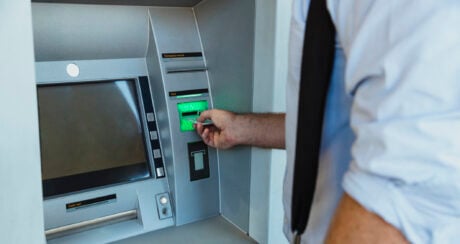A credit ban is a temporary ‘freeze’ on your credit report (or credit file) and is usually valid for 21 days. The ban prevents a stranger from using your identity or financial information to take out credit in your name.
How to put a ban on your credit report
A credit report ban is arranged through the bureaus, not your bank. You can request one directly through the three main reporting bureaus: Equifax, Experian, and Illion. All three agencies likely hold information on you, so arranging a block with each provider is crucial.
You can contact all three or choose one bureau and select ‘notify other credit reporting bodies about the ban period request’ during the application.
- Equifax credit ban: Fill in the online form or call 13 83 32
- Experian credit ban: Complete the online form or call 1300 783 684
- Illion credit ban: Submit the online form or call 13 23 33
The bureau will ask you to submit standard contact details, a reason for the request, and an identification document (driver’s licence, passport, Medicare card or Centrelink card).
Applying for the credit card report ban should only take a few minutes. Read the fine print before submitting your request.
» MORE: What is credit, and why do you need it?
Why request a ban?
Common reasons to request a credit report ban:
- A compromised credit card
- Stolen, misplaced or lost credit card
- Credit applications you didn’t make
- Any signs of alleged fraud
- You are concerned about someone applying for credit under your name
- Personal information involved in a data breach.
If any of these situations occur, first freeze your credit card (via online banking or call customer service). Then, request the credit report ban at Equifax, Experian, and Illion.
» MORE: How to check your credit report and get a free credit score
What does a credit ban do?
A credit report is a document that contains personal information about your credit usage, products, repayment history, defaults and credit score. Third parties use it to assess your creditworthiness and determine whether to approve or deny a credit request.
Credit reporting bodies authorise access to:
- Other credit bureaus
- Credit providers (credit card companies, personal loan issuers and home loan lenders, for example)
- Insurers
- Debt collectors.
A credit ban is a temporary ‘freeze’ on your credit file, usually valid for 21 days. It prevents a credit bureau (Equifax, Experian, or Illion) from using or disclosing the information as part of a credit check.
You can still use your credit card during the ban, and the ban itself won’t affect your monthly bill.
During this time, scammers and would-be thieves can’t open fraudulent or unapproved accounts that require a credit check. If a lender requests your credit report, the bureau will notify them of the ban.
🤓 Nerdy Tip
You might know other credit report terms such as locking, freezing, blocking or holding. A credit report ban is not to be confused with a credit card block, which temporarily freezes the card to prevent usage. If you suspect your card is lost or stolen, request a freeze through your bank.
What happens during a credit ban?
A credit report ban prevents a stranger from using your identity or financial information to take out credit in your name. During a ban, the bureau locks your credit report and denies access to anyone but you.
You won’t be able to apply for new credit, as lenders cannot check your credit before approving you.
That said, credit bans won’t interrupt your daily life. During the standard 21-day period, you can still use your credit card, request or view a credit report, and pay your bills.
After 21 days, if you don’t request an extension, the ban will be lifted.
Benefits of a credit ban
The biggest reason to request a credit report ban is to protect you. It gives you peace of mind that no one else can use your details to access credit products.
If you’re worried about a stranger or someone you know using your name to take out credit, a ban will give you time to rectify the situation.
A credit card ban won’t affect your score, and it won’t harm your finances.
» MORE: What affects your credit score and report?
How to lift a credit ban
If you want to lift the credit report ban, complete the online form at the respective credit bureau:
- Experian
- Equifax
- illion.
Once the ban lift is requested, expect the removal to happen the next day. You could also leave it and wait 21 days for the ban to expire. Remove the ban if the issue has been resolved or you requested the ban as a precaution.
How to extend a credit ban
Credit bans are a temporary defence against fraudulent and stolen attempts and applications. They are valid for 21 days, and ban extensions can take up to 12 months.
If you’ve been the victim of fraud or are still concerned about safety, request a ban extension before day 21. Set a notification reminder five days before to give yourself adequate time. Check your email and messages so you don’t miss correspondence from credit bureaus. You’ll need to provide a police or cyber-report reference number.
You can’t simply extend a ban for no reason or to prevent the sharing of your credit information with third parties.
Take time to familiarise yourself with personal and financial data safety recommendations. Navigating fraudulent credit card charges or usage can be stressful, even if it doesn’t impact your report or score. Prioritise data hygiene and implement additional safety precautions, even if it’s less convenient.
Talk with your bank, credit reporting bureaus, government services, and companies you use and trust. Some sophisticated scammers target individuals, so do your due diligence with passwords, logins and messages. And check your credit report in case anything suspicious happens.
You can get a free credit report from the three main reporting agencies every three months. Review it, check for any issues, talk with the agency to understand it, and set a reminder for every two to four reports annually. Get into the habit of reviewing your credit report as part of your quarterly financial routine.
Frequently asked questions about credit bans
Yes, you can place a temporary ban on your credit report — so no new credit-based applications can happen if your card is lost or stolen. You can also freeze credit card usage through your bank.
Consider a credit report ban if you suspect your card is lost, misplaced, stolen or tampered with. It’s temporary and won’t affect you, but it will prevent credit bureaus from disclosing your credit file (to individuals and organisations).
If you’ve requested a freeze or been the victim of fraud, you’ll be notified of the standard 21-day credit ban. You can extend the ban with no limit to the number of times you do this. It’s a free service. Bans are automatically removed after 21 days unless you make other arrangements.
DIVE EVEN DEEPER

What to Know About Card Skimmers
A card skimmer is a device used to steal payment information at ATMs, EFTPOS terminals and other places you’d use a debit or credit card.

How to Build Your Credit Score
If your credit score is lower than you’d like, there may be fast ways to bring it up, helping you land better deals and rates.

Credit Repair in Australia: How it Works
Many of the steps you need to take to repair low or bad credit can be done yourself for free. However, you can also hire a credit repair company to do some of the work.


